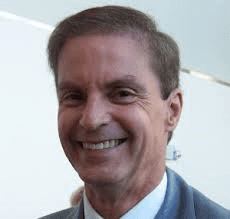New Patent to Help Neurological Disorders
University of Central Florida Professor Emeritus Richard Gilson recently earned a United States patent for an invention that will help patients suffering from neurological conditions, including Parkinson’s disease, Essential Tremor, Tourette’s syndrome, Epilepsy, and mood disorders among others.
The invention aids a well-established therapy called deep-brain simulation (DBS). A surgeon inserts electrodes in certain parts of the brain. The electrodes then send signals that help block symptoms of these diseases, such as tremors, other unwanted movement and gestures, seizures, postural instability, depression, etc.
Deep-brain stimulation has been an FDA approved method of treatment for more than a decade, but it comes with many challenges. Challenges include how to pinpoint the exact position of the electrodes and how to broadcast the electromagnetic signals most effectively. Placement of the electrodes is another challenge, as the exact location of symptom-reducing neurons varies from person to person. The location of the targeted neurons also varies based on the disorder and the electrodes may move over time.
Currently, doctors use the electrodes like a garden hose spray to hit small areas of the brain. Unfortunately, it affects not only targeted cells, but also non-targeted areas producing unwanted side effects. With this new invention, physicians will be able to sharpen and strengthen the electronic signals towards intended neurons post-operatively, without the need for additional surgery.
For Dr. Gilson the invention isn’t just a breakthrough, it holds the potential for not only changing the lives of many, but his own life as well. He was diagnosed with Parkinson’s disease in 2003 and intimately knows the devastating impact symptoms can have on daily living.
Gilson underwent surgery to insert electrodes in his brain about eight years ago. They are battery operated and he says that when signals are active, he is almost symptom free and can work normally. When the electrodes aren’t active, he says he simply can’t work. “With the electrodes ‘on’, they close the door on the symptoms of Parkinson’s and other neurological disorders,” Gilson said. “You can see the difference almost instantaneously. It is jaw-dropping.”
He uses his personal experience to help his research and teaching as a neuroscientist, studying brain and behavior. “If someone is going to have to be afflicted with Parkinson’s, it should be me.” he said. “Since I already work in this field of research, I can use all my knowledge to help make a difference for those afflicted with Parkinson’s and other neurological disorders.”
Gilson, who retired from the psychology department in 2011, and a team of experts at UCF, created the idea for the device in 2012. Others on the team include Dr. Greg Welch, the Florida Hospital Endowed Chair in Healthcare Simulation in the University of Central Florida College of Nursing and respected Orlando neurosurgeon Dr. Nizam Razack.
It is important to note that DBS is not a cure, but a procedure to help patients with neurological disorders function normally on a daily basis. A great deal of additional research is being conducted in hopes to find a cure for these disorders and Dr. Gilson remains extremely optimistic.
Dr. Gilson is a top scholar in Human Factors Psychology and a nationally known researcher. He has secured, directly or indirectly, millions of dollars in funding for research. He is published widely and has supervised more than 25 dissertations. He was instrumental in developing the Human Factors Psychology doctoral program at UCF. Though officially retired, he continues to lecture and give seminars where he is teaching our future doctors.

